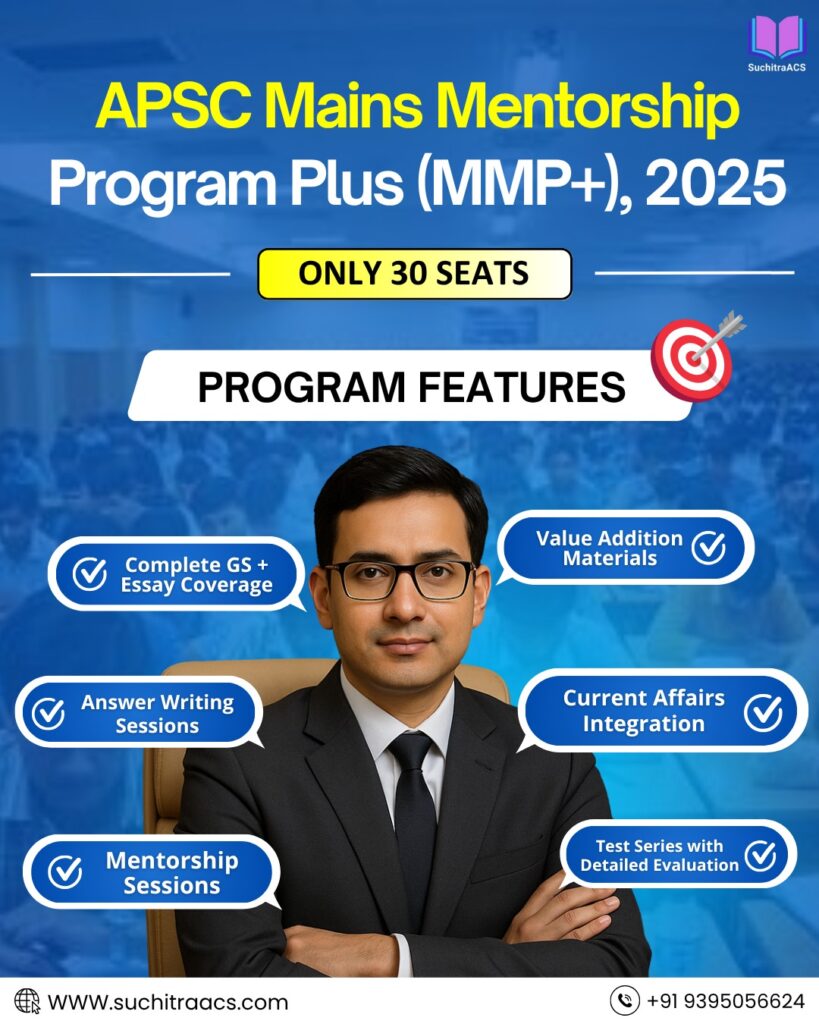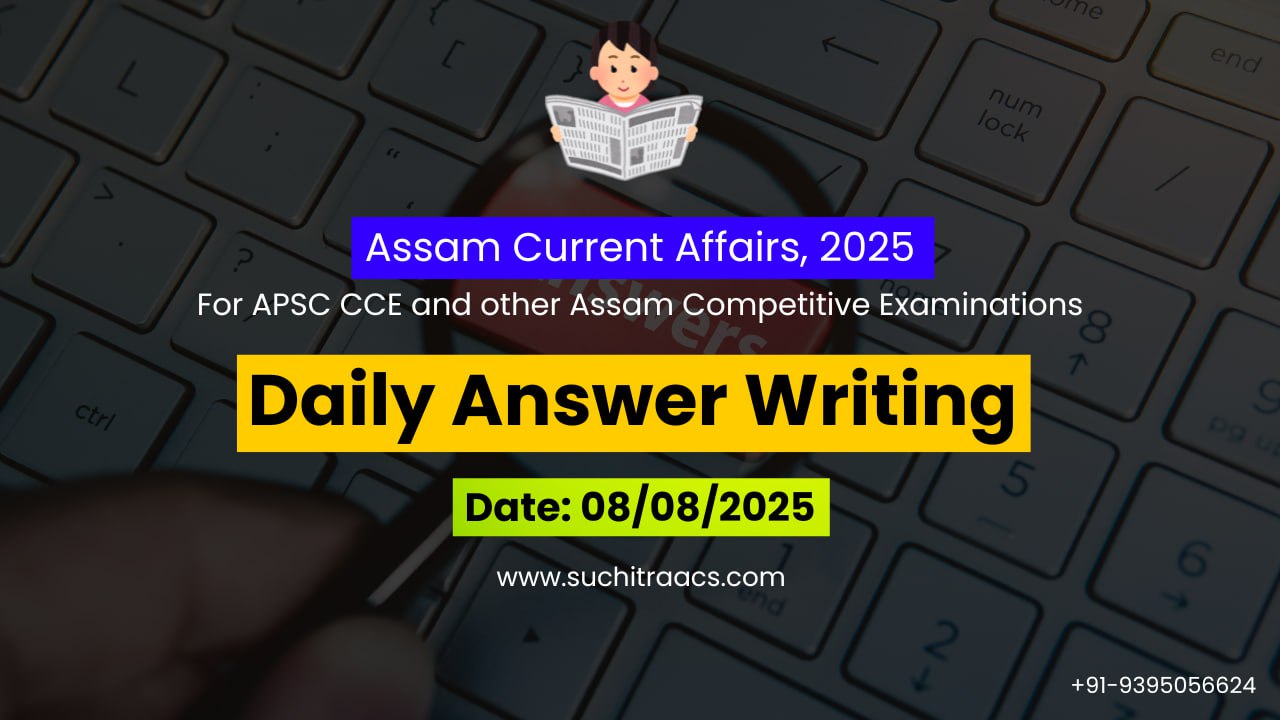APSC Answer Writing (Daily) based on Assam Tribune – 08/08/2025
For APSC CCE and other Assam Competitive examinations aspirants, practicing Daily Answer Writing is vital. This blog covers the most important Main question and its model Answer from the Assam Tribune today (08-08-2025).
Q. “Antimicrobial Resistance is a silent pandemic that threatens to reverse decades of medical progress.” Discuss its causes, impact, and measures needed to address it, with special reference to India.
📘 GS Paper 3 – Science & Technology | Public Health | Biotechnology
🔹 Introduction
Antimicrobial Resistance (AMR) occurs when microorganisms (bacteria, viruses, fungi, parasites) evolve mechanisms to withstand the drugs designed to kill them. According to The Lancet (2022), AMR directly caused 1.27 million deaths globally in 2019, with the WHO warning that the toll could reach 10 million annually by 2050 if left unchecked. For India — one of the world’s largest antibiotic consumers — AMR is not only a public health crisis but also a developmental challenge.
🔹 Causes of AMR
| Cause | Explanation |
| Overuse & Misuse of Antibiotics | Self-medication, unregulated pharmacy sales, unnecessary prescriptions. |
| Poor Infection Control | Inadequate hospital hygiene, improper waste disposal. |
| Agricultural Misuse | Antibiotics used as growth promoters in livestock and aquaculture. |
| Slow Drug Discovery | Declining pharmaceutical investment in new antimicrobials. |
| Environmental Contamination | Pharmaceutical effluents releasing active antibiotic residues. |
🔹 Impacts of AMR
- Public Health – Increased mortality from once-treatable infections; complicated surgeries.
- Economic Losses – Longer hospital stays, higher treatment costs, reduced workforce productivity.
- Food Security Threats – Resistant infections in livestock and aquaculture.
- Global Health Security Risk – AMR is transboundary; linked to pandemics and biosecurity concerns.
- Relevance to Assam/NE – Limited diagnostic facilities and unchecked OTC sales heighten rural vulnerability.
🔹 India’s Response
- National Action Plan on AMR (2017) – Multisectoral “One Health” approach integrating human, animal, and environmental health.
- Red Line Campaign – Red mark on antibiotic packs to discourage misuse.
- FSSAI Regulations (2020) – Ban on certain antibiotics in food animals.
- ICMR Surveillance Network – AMR tracking across hospitals.
- State Action Plans (SAPs) – Including Kerala, Madhya Pradesh; NE states yet to fully operationalise.
🔹 Challenges in Implementation
- Weak enforcement of prescription-only sales.
- Patchy AMR surveillance, especially in rural and NE states.
- Overcrowded hospitals with poor infection control.
- Farmer dependence on antibiotic-fed livestock for economic security.
- Limited public awareness on drug misuse.
🔹 Way Forward
Policy & Regulation:
- Strict enforcement of prescription-only antibiotic sales.
- Expand State Action Plans to NE states with region-specific strategies.
Healthcare Strengthening:
- Invest in hospital infection control systems.
- Promote rapid diagnostic tests to reduce unnecessary prescriptions.
Agriculture & Environment:
- Regulate veterinary antibiotic usage and promote biosecurity in farms.
- Treat pharmaceutical wastewater before release.
Research & Innovation:
- Incentivise R&D for new antimicrobials and vaccines.
- Collaborate internationally under WHO’s GLASS platform.
Public Awareness:
- School-level AMR education campaigns.
- Community outreach through ASHA and ANM workers.
🔹 Conclusion
AMR is not merely a health issue — it is a societal threat with economic, environmental, and security implications. India must adopt a robust One Health approach, blending strict regulation with grassroots awareness. For the North-East, including Assam, early containment through better diagnostics, regulated drug sales, and community engagement is essential to prevent AMR from becoming the next silent pandemic.
✨ Looking for top-quality APSC Mains Guidance with Personalised Mentor?

🔔 Join Our WhatsApp Study Group!
For exclusive access to premium quality content, including study materials, current affairs, MCQs, and model answers for APSC CCE and other Assam competitive exams.
Click here to join: SuchitraACS Study WhatsApp Group
📚 Want to know more about SuchitraACS’s most affordable courses?
Click here to know more: SuchitraACS Courses for APSC CCE and Assam Competitive Examinations




